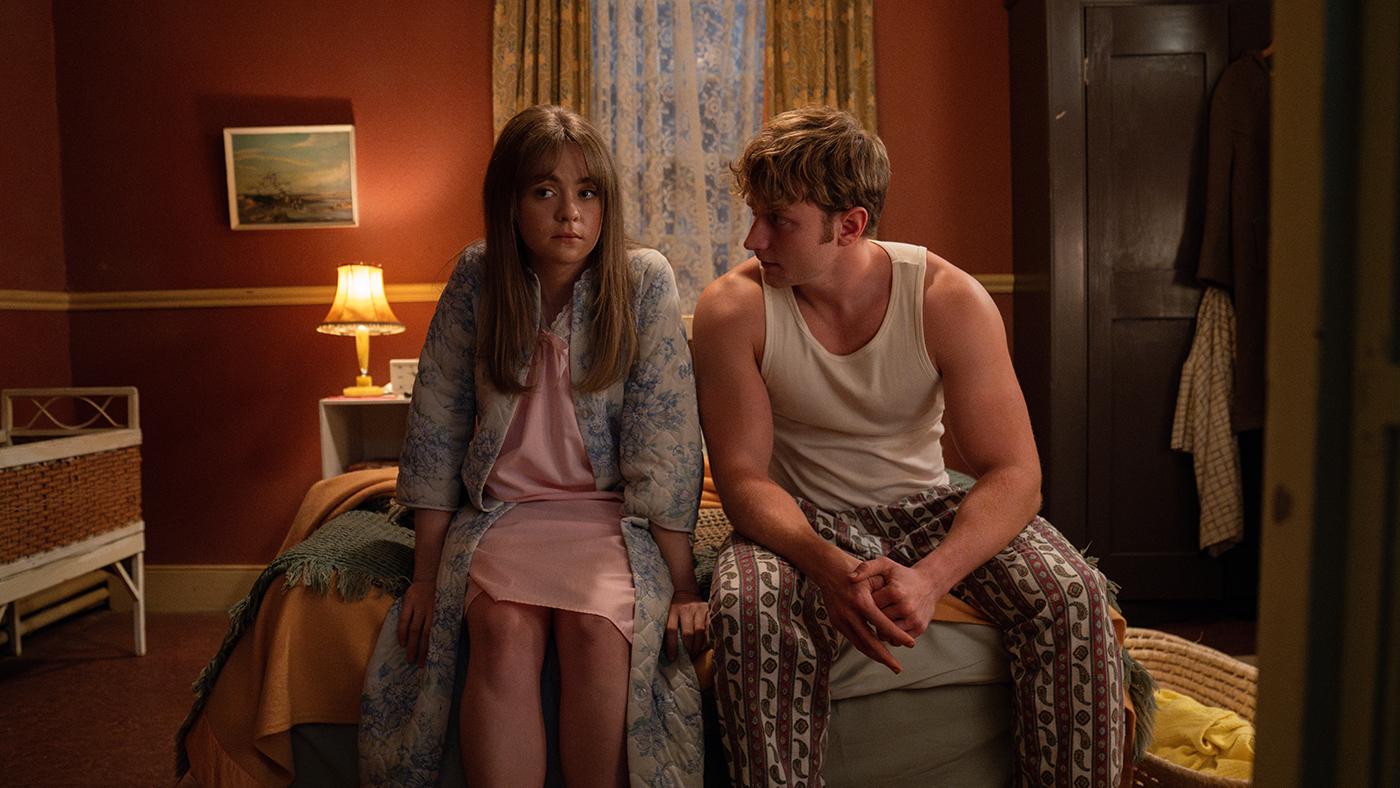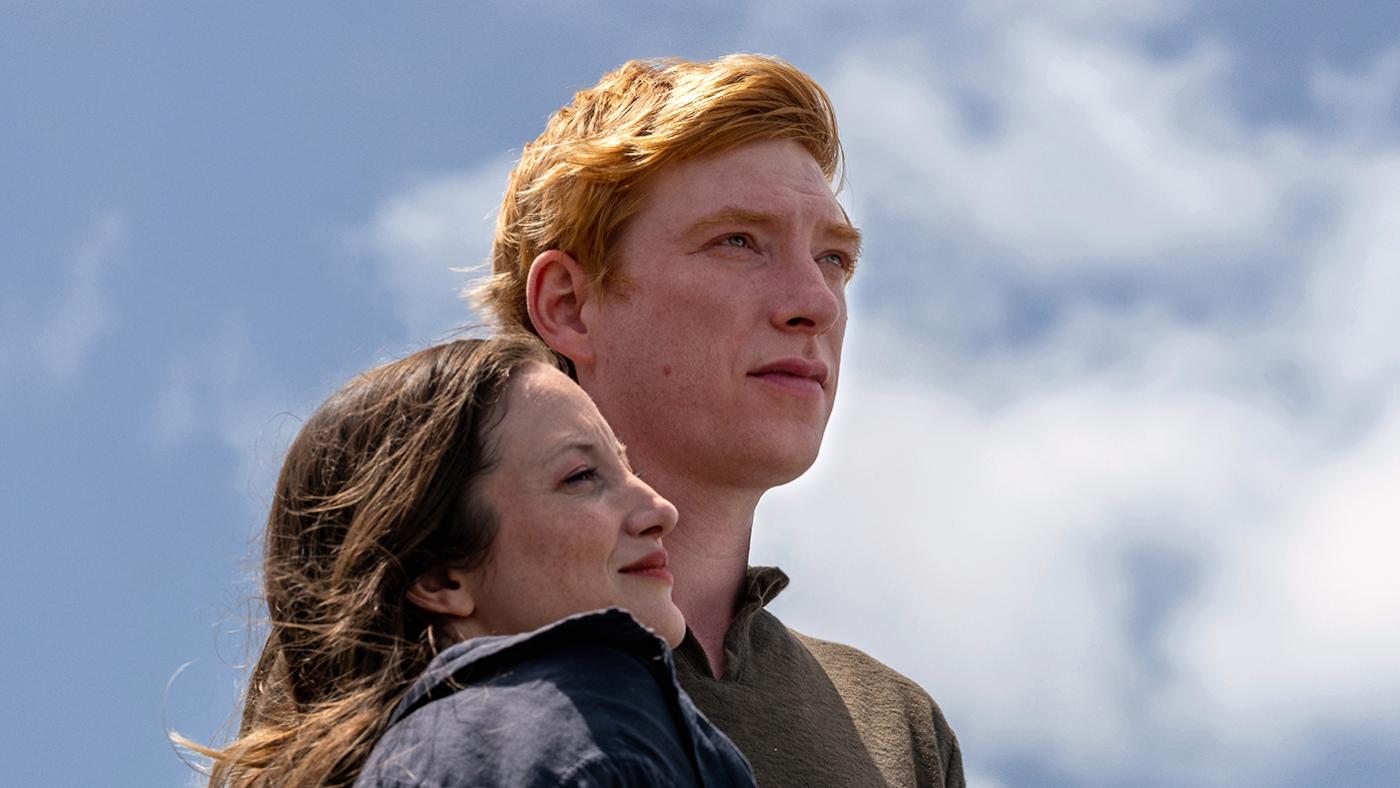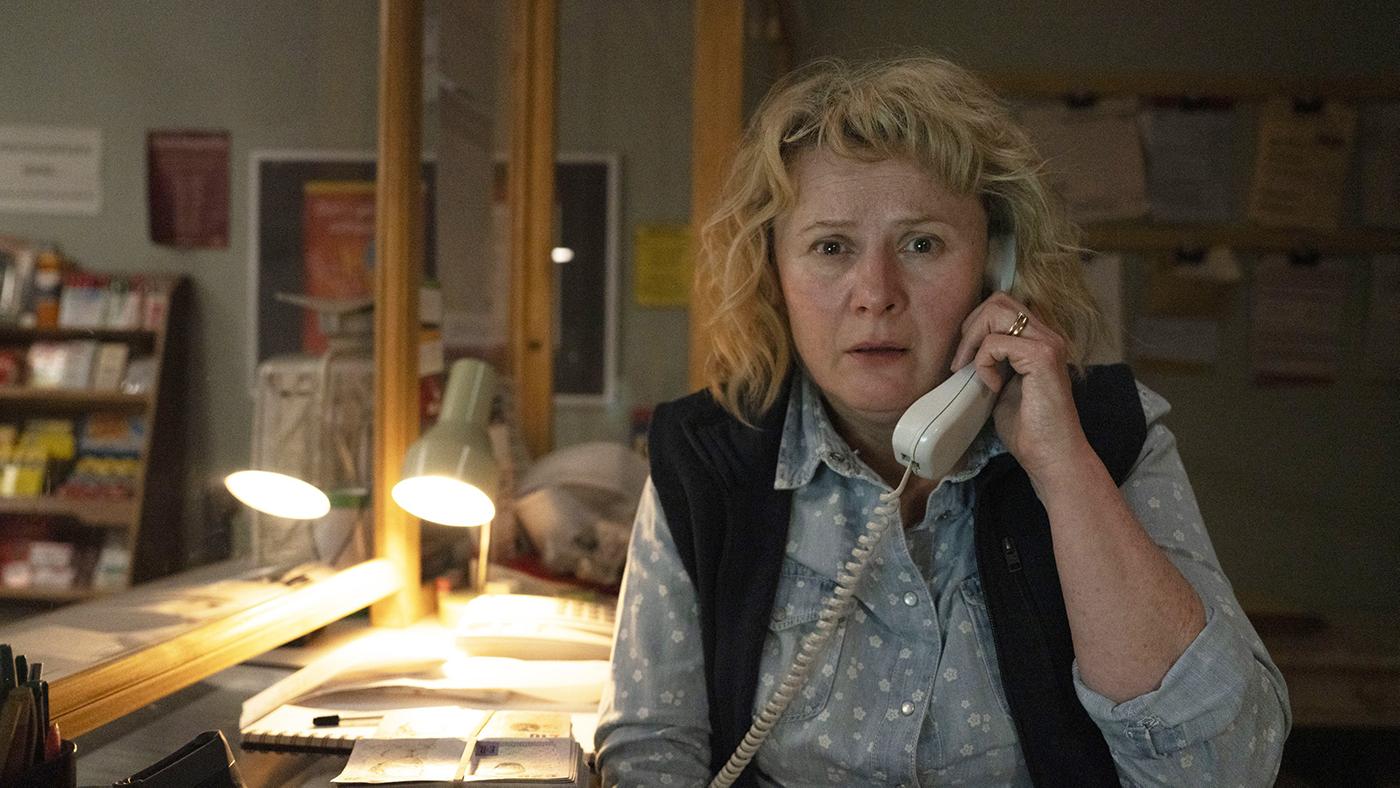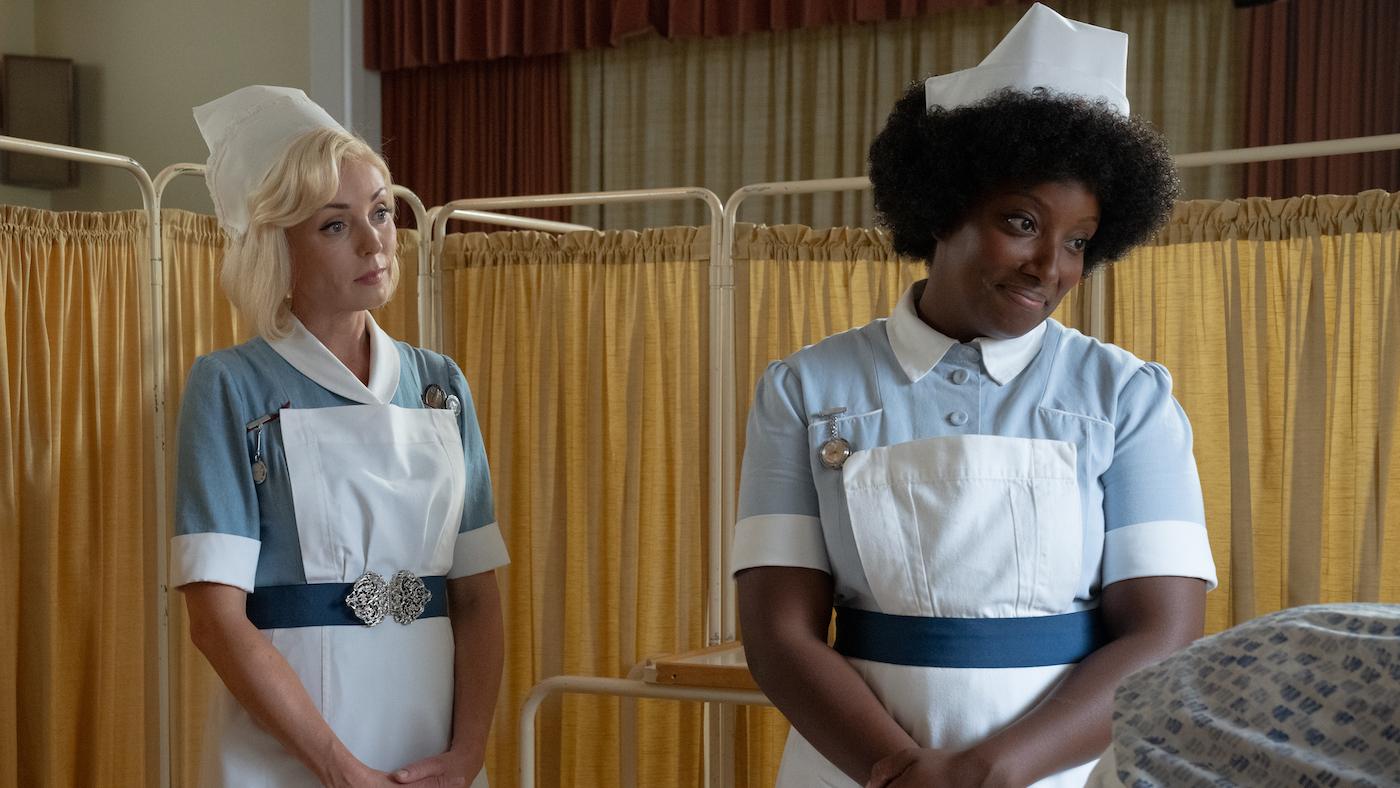'COBRA' Recap: Season 2 Episode 2
Daniel Hautzinger
July 17, 2022
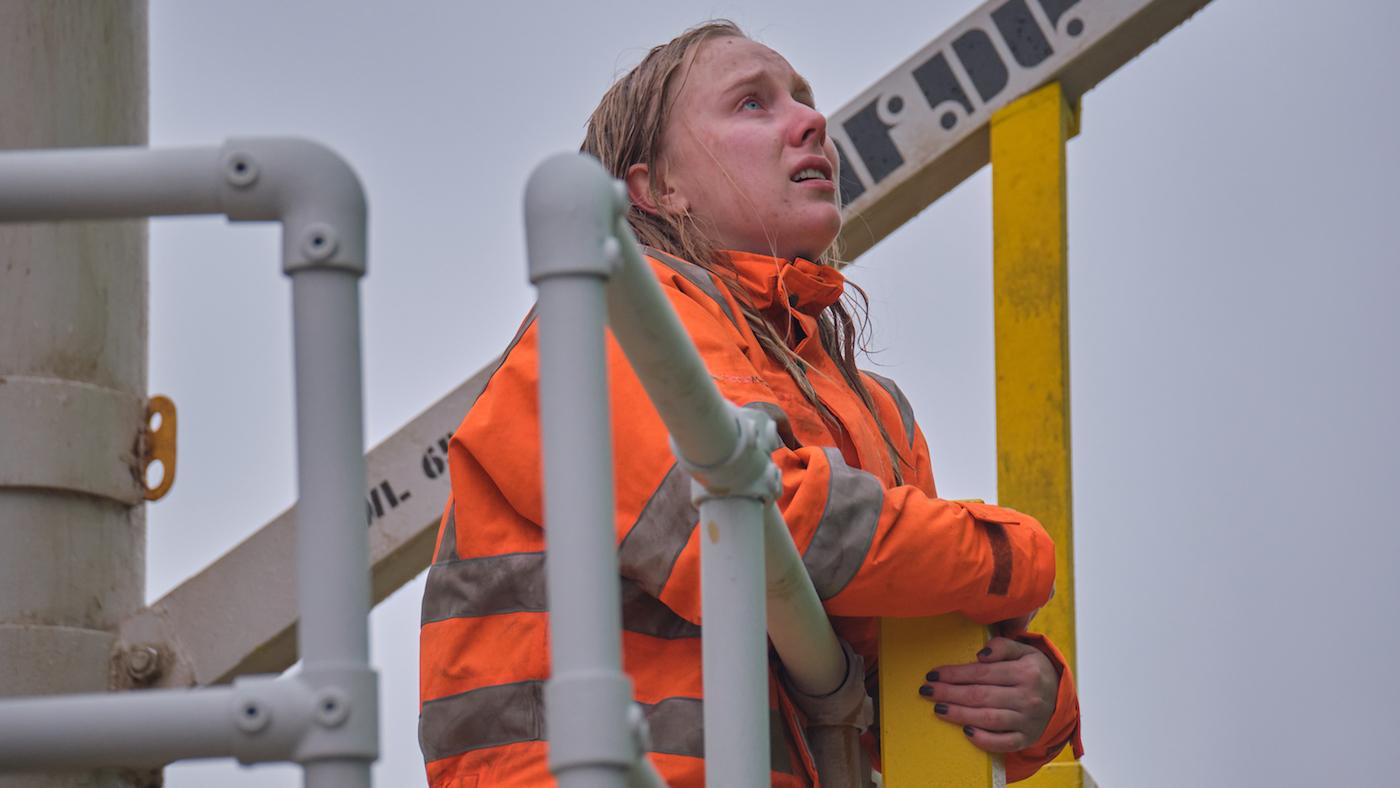
COBRA airs Sundays at 9:00 pm and is available to stream. Recap the previous and following episodes.
Audrey is barely clinging to a piece of flotsam in the North Sea, buffeted by rain. Luckily Mark Everly, the naval commander with whom she shared a boat, has also survived the explosion of a submerged munitions ship and managed to inflate a raft, and to rescue her. Unluckily, the raft has been punctured and is taking on water. They must swim to a nearby offshore wind turbine if they are to survive.
Audrey is horrified by the prospect of getting back in the water, but she makes it to a boat anchored at the turbine with the help of Mark and a life vest. Only one member of the boat’s crew is left alive after the blast, but the boat was also damaged and will eventually sink. Night is coming and bringing a storm with it, and helicopters can’t brave the weather, so Everly, Audrey, and the crewman must climb up to the turbine’s maintenance platform in the rain.
They’re not the only ones stranded in bad situations after the blast. Emergency communications are down due to a cyber attack, and the hack has also spread to mobile phone networks, leaving Fraser to decide to set up a courier system to ferry messages throughout the disaster zone by hand. He’s aided in that by Audrey’s brother Cary, who comes to the disaster command center to be told in person by Fraser that Audrey is missing and presumed dead. The news is devastating, but Cary can at least rustle up a crowd of scooter enthusiasts, including himself, to carry messages.
Plenty of other people are also missing and presumed dead, including the area’s local Member of Parliament, who was helping with the evacuations. The death count currently stands around 300, but is sure to rise—especially given the lack of communications technology, which will lead to preventable deaths.
The Prime Minister is furious at the lapse in cyber security. His intelligence director, Eleanor James, can’t tell who’s behind the attack. Code seems to point to the Russians, perhaps in retaliation for arresting a well-connected Russian woman who seems to be responsible for an assassination of an oligarch on British soil, but that could also be misdirection. Robert demands a meeting with the Russian ambassador.
Robert is already on edge because the report into the killing of a photographer during the solar storm crisis is due to come out tomorrow. Anna, too, is raw: Eleanor has shared that Anna’s former lover, Edin, killed himself before being reached by his enemies. Anna knew he wouldn’t survive if he didn’t take a deal with Eleanor, but he refused. She snaps at Robert when he tries to ask if she’s okay, then later apologizes. He tells her she doesn’t need to; he already knows everything.
Eleanor wants Robert to release the prisoners suspected in the oligarch’s killing, to hopefully end the cyber attack, but he refuses, and Anna agrees with his decision. His new Home Secretary Joseph Obasi disagrees; he would have never arrested them in the first place. But Joseph is on the ground in Kent, a foil to Robert’s former Home Secretary and political rival Archie Glover-Morgan, who is criticizing the government’s failure to prevent or address the hack on TV.
Archie visits Robert and tells him several things: he has hired Robert’s former press secretary Peter Mott as an aide; he can give Robert a bigger Parliamentary majority if Robert gives Archie’s group a powerful position; and Archie would like to be Foreign Secretary. Oh, and Robert should fire Eleanor.
The Labour Party leader Chris Edwards knows that Joseph is a canny operator, and wants Francine Bridge to rejoin Labour and be in the Party’s shadow Cabinet as an opposite to Joseph. Francine could be re-elected as a Member of Parliament to replace the Kent MP killed in the disaster. She also has a useful relationship with the radio host Hari Misra, who is managing to scoop the government on various secrets, including that the tremor that caused the ship to explode might be connected to drilling in the ocean by a Chinese firm contracted by the government. Robert has put the contract with the company on hold, but is trying to prevent that action from being linked to the tremor in public.
Francine warns Hari to be careful, and rightfully so: Robert wants to discover his source. Eleanor is thus watching and intrigued when Hari and Francine meet at a bar. But Hari continues to receive information, like a flash drive with a video showing a man tied to a chair. Text declares him responsible for the explosion in Kent. An anonymous male voice tells Hari via phone call to destroy the drive when he’s done with it.
Robert is embarrassed when he meets with the Russian ambassador, who denies any involvement in the cyber attack—and tells Robert the woman they have arrested is not the well-connected Klara Lechkova. Eleanor checks later and ascertains that the woman is indeed an impersonator, with fake identification documents. Her accomplice Rodrigo Araya is just a “piece of work.”
Robert wants to launch a retaliatory cyber strike on Russia for all the misdirection. Eleanor begins preparing it, as Anna advises Robert not to fire Eleanor.
As night and the cold deepens, Everly decides to try to swim to shore—Audrey and the crewman will never survive the chill long enough for rescuers to reach them. Audrey tries to keep the crewman awake by talking to him of her late father—and finally, as they shiver on the exposed turbine platform, a helicopter arrives, with Everly inside, still recovering from his freezing, long swim.
More good news is that the report into the photographer’s death clears Robert and his government—so it is leaked to the press. Even better is the restoration of communications. The malware is still out there, but Eleanor’s team is playing whack-a-mole with it anywhere it pops up. Fraser and Joseph return to London to brief everyone on the relative success of the emergency response, despite all the difficulties.

